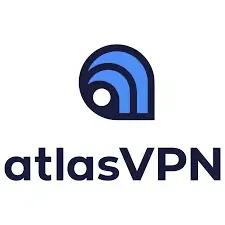Jump To
VPN for dummies: How to Protect Your Privacy and Stay Safe Online
Are you concerned about your online privacy?
Do you want to stay safe online?
If so, you need a VPN.
VPNs (or virtual private networks) are tools that allow you to protect your privacy and stay safe online.
VPNs provide a number of benefits, including:
- Protection from hackers
- Protection from government surveillance
- Protection from identity theft
- Ability to access blocked websites
If you’re not using a VPN, you’re putting yourself at risk.
In this VPN for dummies blog post, we will teach you how to use a VPN and why it’s important.
VPN for Dummies
What is a VPN and what are its benefits?
A VPN, or Virtual Private Network, is a type of online security that allows users to surf the web anonymously and securely.
A VPN encrypts all of the data that is sent between your computer and the VPN server, making it impossible for anyone to intercept and read your information.
This is especially important when using public Wi-Fi, as these networks are often unsecured and vulnerable to attack.
In addition to protecting your privacy, a VPN can also help to improve your online security by hiding your IP address from hackers and blocking malware and other threats.
As a result, a VPN can provide a valuable layer of protection for your online activity.
How to set up a VPN
Setting up a VPN is simple and only takes a few minutes.
To get started, you will need to choose a VPN provider.
There are many different VPN providers available, so be sure to do your research to find one that meets your needs.
Once you have chosen a provider, sign up for an account and download the VPN software.
Once the software is installed, open it and connect to a server location.
That’s it!
You are now ready to start using your VPN.
How to use a VPN
Using a VPN is easy.
Simply open your VPN software and connect to a server location.
Once you are connected, your traffic will be encrypted and you will be able to surf the web anonymously.
You can use your VPN to access blocked websites, stream videos, and download files securely.
Why you should use a VPN
There are many good reasons to use a VPN.
VPNs can help to protect your privacy, improve your online security, and allow you to access blocked websites.
VPNs are also relatively easy to set up and use.
If you’re not using a VPN, you’re putting yourself at risk.
How to choose the right VPN for you
There are many different VPN providers available, so it’s important to choose one that meets your needs.
Be sure to consider factors such as price, speed, security, and server locations when making your decision.
Once you have chosen a VPN provider, sign up for an account and download the VPN software.
Are VPNs Illegal?
No, VPNs are not illegal.
VPNs are legal in most countries around the world.
However, there are a few countries, such as China and Iran, where VPNs are subject to restrictions.
If you plan to travel to one of these countries, be sure to check the laws before using a VPN.
Is A Proxy Better Than A VPN?
Proxies and VPNs are both tools that can be used to improve your online privacy.
However, VPNs offer a number of advantages over proxies.
VPNs encrypt all of the data that is sent between your computer and the VPN server, making it impossible for anyone to intercept and read your information.
In addition, VPNs can provide a number of other benefits, such as the ability to access blocked websites and stream videos.
If you’re looking for a tool to improve your online privacy, VPNs are a better choice than proxies.
Are A VPN App And Extension The Same?
No, VPN apps and extensions are not the same.
VPN apps are designed to be used on your computer or mobile device, while VPN extensions are designed to be used with your web browser.
VPN apps encrypt all of the data that is sent between your device and the VPN server, while VPN extensions only encrypt the data that is sent between your browser and the VPN server.
As a result, VPN apps offer better privacy protection than VPN extensions.
If you’re looking for a tool to improve your online privacy, VPN apps are a better choice than VPN extensions.
What Next? VPN for dummies
VPNs are a valuable tool for protecting your privacy and security online.
They can help to encrypt your data, hide your IP address, and access blocked websites.
VPNs are easy to set up and use, so be sure to protect yourself by using one today.
More VPN Articles
6 Reasons To Use A VPN For Travel
How To Use A VPN To Change Location And Get Around Geographic Restrictions

